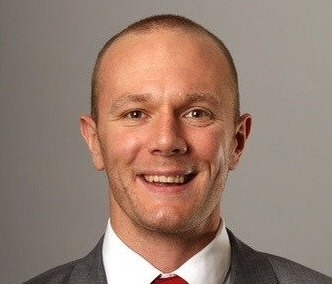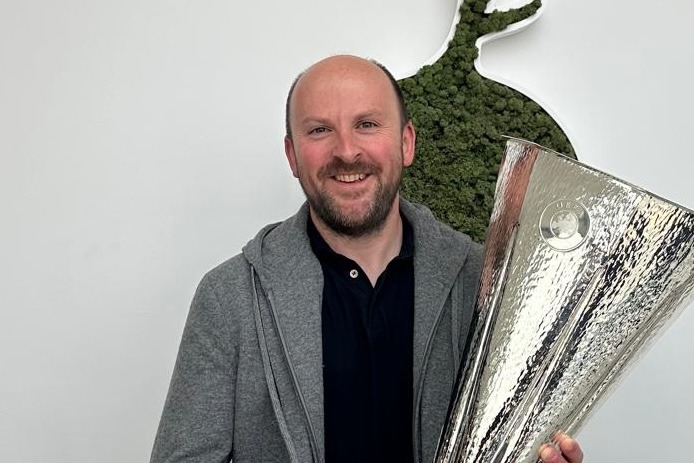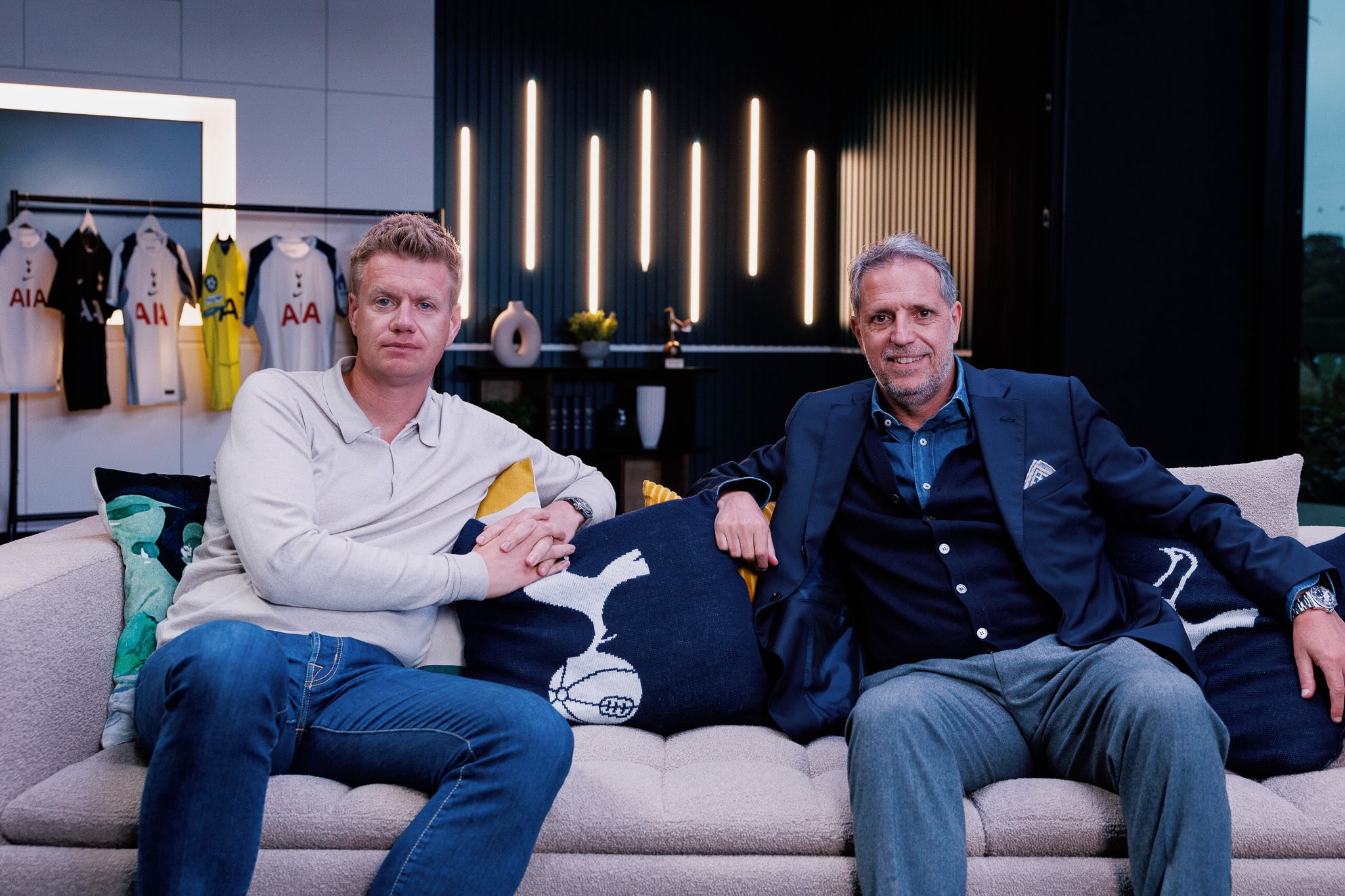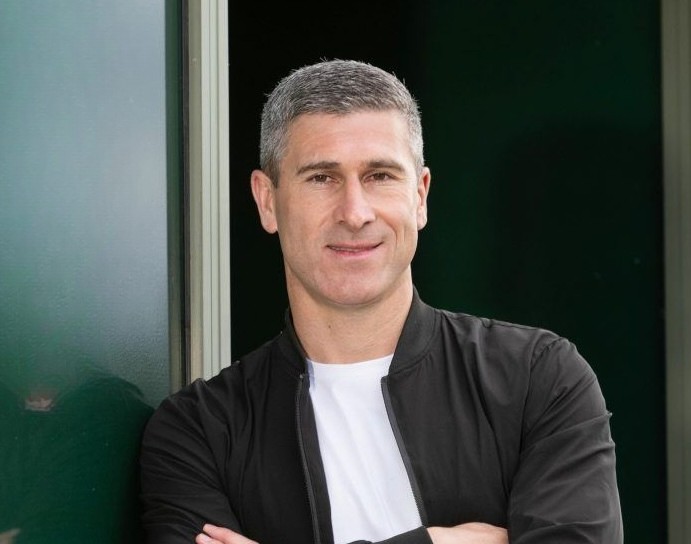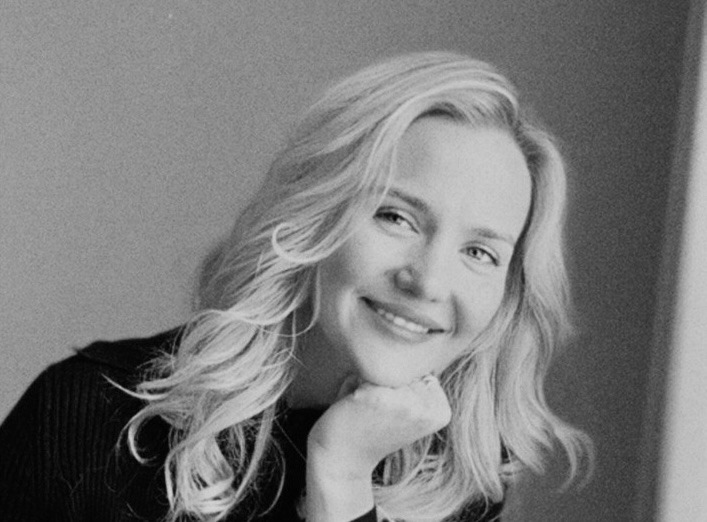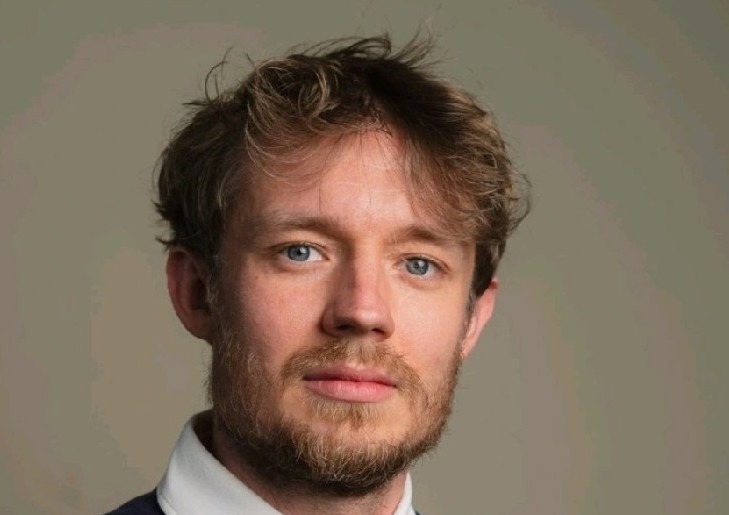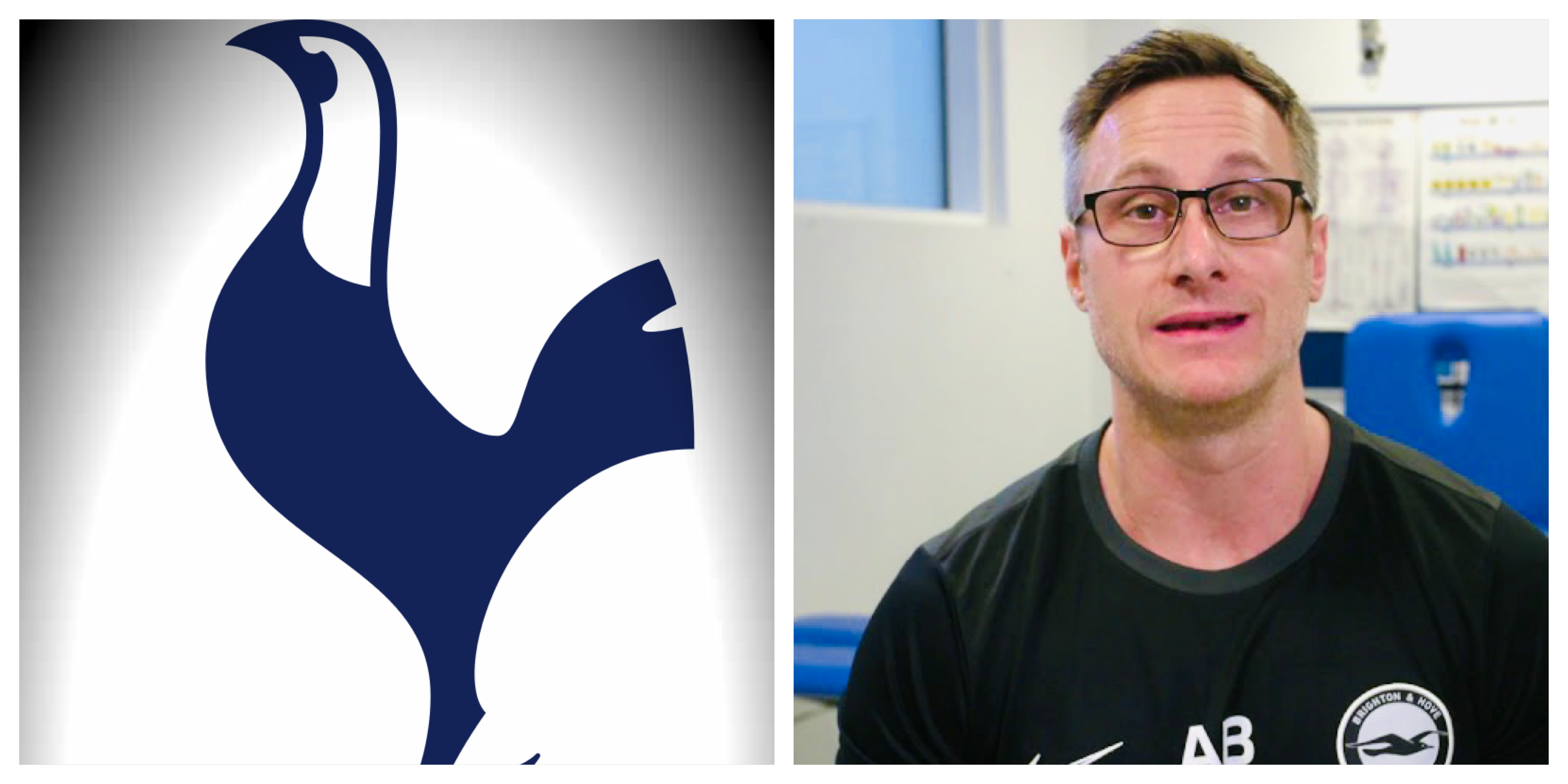(Tottenham ended their 17-year wait for a trophy by beating Manchester United in the final of the Europa League in Bilbao in May).
There were some real difficult games – away at Frankfurt, away at Bodø/Glimt, which is a real difficult place to go on a synthetic pitch. We had to stick together and get through what we did. For Ange to manage it the way he did was something I learned a lot from, because I think a lot of people did doubt that we could do it.
And I think that drove the players on as well, because everybody was so together after all the challenges that we’d faced – we all believed we could win the Europa League. For many years it had been easy for people to target Tottenham as never having won a trophy. We wanted to break that.
And then Ange came with the famous quote that he always wins in his second season. From that moment there was a lot of pressure and I think a lot of people didn’t want us to achieve that. But I think that’s a measure of him as a manager. To assist him throughout the season was a real honour for me.
As a leader, you have to believe we’re going to win something. And for me as an assistant, and the rest of the staff, we all believed. I genuinely believed that with the group of players we had, once we got everybody back fit, we’d already proved that we could beat the best in the Premier League.
We knew we just had to work hard and keep the belief amongst the group and keep that camaraderie. We had a real family environment and I think that’s the big strength that Ange managed – to keep everybody believing. I definitely learned a lot from him.
The biggest lesson was to keep believing, even during the difficult times. Don’t ever waver in what you believe. And I think that definitely does go across to the players, because they need the manager to believe, because the moment they see you don’t believe it, then it’s really hard for them.
Visualisation and manifestation, I believe in that as well. I think if you really believe it and you keep pushing every day – and on the tough days, you come in and work as hard as the days when you’ve won a game – it’s all about keeping the standards.
Afterwards, we all celebrated. It’s like a big family. When you go through the adversities we went through that season – and the multiple injuries and the periods when we had a lot of young players that had to play week in, week out – it was amazing.
In the end you can always celebrate a historic win and for a lot of the players it was the first trophy that they’d won in their careers. I think that made it quite special, because of the circumstances and pressure that everybody was under.
The environment we had was a real family environment, everybody together. To see the fans on the trophy parade was something else. I’ve been fortunate to have a few trophy celebrations and open top buses, but when you see 250,000 fans around the stadium just celebrating and swinging off lamp posts and standing on top of houses and portaloo toilets that were caving in when we arrived back at the stadium.
That was definitely a good week and one that I will always treasure being involved in.
There’s a quote that I believe in – your best ability is availability. If you can have your best players fit and available throughout the whole season, it’s going to give you the best chance of succeeding.
We had to sort of sacrifice the league and really try to keep everybody as fit and healthy as we could going into the Europa League latter stages. The timing of us getting players back towards the end of this season (was important).
A lot of players now, they play a lot of games. I think most Premier League clubs go through a lot of disruption with players on international duties, whether it’s the Euros, World Cup, Copa America. And a lot of players came back late into pre-season. And the Premier League is unforgiving.
You start the season, you have the Premier League games, the League Cup games and then obviously the Europa League starts. But again, you can never really understand why you have so many injuries. I think we were very unlucky. There’s definitely an element of luck. And we probably didn’t have the biggest squad, either.
So I think when you couple all that together you’re always going to be crossing your fingers that you can keep everybody fit and available. And unfortunately that wasn’t the case.
So when I played (for Central Coast Mariners, from 2012 to 2017), I played against his teams.
And then by the time I started managing there (in Australia), he’d moved on to Japan and Celtic. He’s a keen follower of the A League and obviously he saw what I’d done with a really young group of players, which he was really impressed with.
And not only that, we brought in some visa players that were within our budget that we then developed and sold them to the J-League, sold them to different leagues around the world.
So I think he followed that closely. And he was one of the first people to send me a message after we’d won the Championship (A-League) in Australia and I think that showed the measure of him. We’d been in touch via text messages up until the moment that I spoke and came to join him at Tottenham.
Chris Davies had moved to Birmingham City and at that moment there was an opportunity to bring an Assistant in. I spoke to Ange and it all happened quite quickly.
It was just before pre-season started at Tottenham. In terms of timing, it was great. I knew I was going into a huge club working in the Premier League and a team that had Europa League that season. So that was something new for me as a coach.
And again, learning from someone like Ange, that’s won multiple trophies in multiple countries, which I think is very difficult to do. Not many people have done that.
He’s a unique guy.
He’s a manager that’s had success in multiple countries, and I don’t think many that have done that. He’s proven he can manage in the highest league in the world, which is the Premier League – a pinnacle where everybody wants to get.
And not only that, he’s a European Cup winner in his second season in the Premier League. So, no doubt he can go on and achieve things, wherever he decides in future.
I think he’s really authentic and really honest. I believe that’s a big part of me as well. I think that’s why we connected in the first place.
The belief that he gave everybody – even during the really, really difficult times, when we had a full medical room, when we had everybody doubting us. As staff, your role is to be an extension of the manager.
Being an Assistant is about supporting the Manager, making sure the messages are clear and that everybody’s on the same message. And to keep the belief in the most difficult times.
He never wavered in his belief. And to come out and say it publicly and back it up, I mean, that’s probably going to be the biggest mic drop of all time, no doubt, in many years to come.
I think the players loved him. You saw the outpouring of grief by the players when he left the club, and you don’t see that too often in football.
As a leader, you have to set your stall out, and he said that right from the start – ‘we’re going to win something this season.’ Throughout the season, we had some huge results – as I mentioned earlier, at City, for example – and we knew that when we had everybody fit and we were strong and healthy, we could compete with everybody.
Training was always high intensity, always high quality, even when we didn’t have loads of players. It’s more about recovery when you’ve got three games a week, you’ve got a lot of travel, and that’s when the sports psychology side comes in. You don’t accept negativity and you don’t accept people not believing.
And, ultimately, it’s about getting around everybody and keeping that communication, I think that’s really important.
We’ve been in touch every now and then (since leaving Tottenham). I think he’s been on holiday a lot, which he deserves. When you win something, like we did together and went through what we did, you’re always going to have that family connection, because it’s impossible to achieve what we did.
People will realise down the line it’s not easy to win a European Cup. And under the circumstances that we had, I think it was an amazing achievement. So we still speak every now and then and who knows what the future might hold.
I always believe that out of tough situations there are positives to take and the young players playing a lot of games was one. Archie Gray and Lucas Bergvall – two young players that maybe weren’t signed to start games played 50 odd games each last season.
In the long run, you’re talking two fantastic young players there.
Working with a lot of young players over my career and developing a lot of young players, I think the only way to really accelerate their development is to play them. At times you’re going to suffer, because the biggest consistency with young players is they’re going to make mistakes.
That’s where you have to stick with them. They learn from their mistakes and learn from that experience. And that’s something that as a club you’re always proud of – bringing Academy players through and giving them appearances.
I played with Archie’s dad, Andy, for many years. Archie is a great, a great kid. He has an unbelievable attitude, the same as Lucas Bergvall and then Brennan Johnson – I played with his dad as well!
There were definitely a few con56nections there and that made me feel pretty old! But it’s amazing to be working with top-class Premier League players and internationals.
It’s definitely a much younger game now than it was 10, 15, 20 years ago, I’ve definitely seen that change. That’s partly because of the amount of running you have to do now. In the Premier League, if you look at the stats, the number of high-intensity sprints, distance covered, it’s massively athletic and you have to have a big capability to play at the highest level.
The young players are coming in now and the demands on them are really high. If you continue that for a long period, then yeah, it’s obviously going to pick up injuries. And as you get older it becomes more difficult.
And again, the value – you want to put the value in them at a young age, put them on long contracts so that whether you’re a selling club or buying club, you’re going to be looking after your investments and putting them on long term contracts.
And that’s one thing that you can do with the young players. And I think you’ve seen the huge sums of money now that players are going for around the world, especially in the Premier League. It’s definitely changed over the years.
To work with those two players, people always ask what’s the biggest difference? And for me, it’s always a mindset, it’s always the belief. Ability is one thing, but attitude has to be spot every day. And you look at them too and you’re always in the gym, always doing the extras, whether it’s training – you have to pull them off the training ground.
Looking at both of them last season, playing 50 odd games each and winning a Europa League in the first season of Premier League football, it’s an amazing start for them and hopefully they continue to progress.
Already now they’re experienced Premier League players and they’re still 18, 19-years-old. So they’ve definitely got big futures ahead of them.
I think Archie’s always been a midfielder, but I think his problem is he’s such an honest player that he will play in any position, he’ll play anywhere to play in the team.
Coming from Leeds, he played a lot at full back, rotating inside as a midfielder – and at Tottenham as well. He played at centre back quite a lot of the season because we had so many injuries, so most of the season Archie was playing left centre back.
He’s right footed and he’s playing left centre back in the Premier League against the best players in the world and he’s a midfielder coming in in his first season, but he just got on with it. His attitude was amazing and to see him progress and work with him last season, knowing his dad and knowing his family, was really special.
And I think when you win something as monumental as we did, it’s always going to create those relationships. No matter where you are in future, you’re always going to be able to use that moment where you remember winning a European trophy. And I’m sure for them, they will treasure that moment for the rest of their careers.
Set pieces are a huge part of the game. A lot of clubs do have set piece coaches now. You talk about narratives – Ange never said he didn’t do set pieces. Obviously I wasn’t there the season before and I came in as an Assistant and he asked me and Mile Jedinak to look after the set pieces.
And that was something that I enjoyed. Clubs now have the set piece analysts, so a lot of the data is there for you. You can see a lot of the teams now in terms of the strategies from set pieces. For us, it was a big improvement on the season before. I think it was 35% less goals conceded and that’s quite a high percentage.
We were second to Arsenal from scoring direct from corners – and everybody realises how good Arsenal are. I was working with a lot of the young players that probably weren’t used to being involved in set pieces of that magnitude.
You’re teaching Archie Gray and Lukas Bergvall. Obviously it’s a contact sport and I think you can see from set pieces and corners there is a lot of contact. It’s really hard for the referees. I think if they stopped every corner and looked at VAR, they could probably not give the goals or give fouls.
But look, it’s part of the game and you have to adapt. We went a big part of the season where we didn’t have Micky van de Ven, we didn’t have Christian Romero, we didn’t have Richarlison. And you’re talking some of your biggest at not only defending set pieces but attacking set pieces too. So we’re asking Archie Gray, Wilson Odobert, who’s not the tallest, and they’re having to do jobs against some of the most physical players not only in the Premier League, but probably in world football.
So, yeah, it was a real task, but something that we collaborated with the rest of the coaching staff on as well. Delivering the sessions was part of what myself and Mile Jedinak did and yeah, we did work on them quite a bit.
So, again, you talk about narratives. I think in the media there’s always narratives. If you look at the stats over the season, we were very strong on both attacking and defending. When you put it into context and you look at the team that we had available on the height and physicality of the players that we had missing and, again, that’s something that people don’t put in context, but they’re facts.
It was a real challenge, but we’ve definitely seen a lot of growth, a lot of confidence in the young players coming in and being able to handle that, not only in the Premier League, but in Europe and going into that final as well.
It was really important we kept a clean sheet in the final. And you’ve got Harry Maguire, who’s one of the best set piece attackers and defenders in the Premier League. So when you look back on the whole season, it was a real learning opportunity for a lot of the young players.
It’s something that again we’re really proud of, considering we also didn’t really have a specific set piece taker. Obviously Pedro Porro is a fantastic technician, but you’re asking your right full-back to then go on the left side to put in in-swinging crosses. Then, with the transitions that happen in the Premier League, you’ve got your full-back out of position. So you have to look at all these different scenarios.
We did work a lot with some of the players that possibly weren’t set piece takers, and Sonny was one of them. I think Sonny scored a couple of direct corners, if you remember, against Man United, put in quite a few balls and so did Maddison. It was about pushing the players to work on the delivery and then obviously the blocking and the timing and the attacking of the run.
It’s very complex and you can see that with some of the teams that spend a lot of time on set pieces.
What’s really important when you’re delivering a set piece is that everybody’s not standing around. So we created some drills where everybody was active. We had balls coming in from both sides in terms of attacking, but also defending.
It’s about understanding what the opposition are going to do, setting up as the opposition, and also giving them the information that, ‘this is what is going to happen.’ Always it’s down to the delivery – it doesn’t matter how you set up if they don’t get the delivery right.
A lot of teams work on the delivery and it’s a repetition of the same run, the same delivery, and blocking certain players. Then you have players that are strong at heading, players that are strong at blocking, and players that are good at delivering the ball. So really it’s working on everybody’s strengths.
In the end it’s more about repetition, so that once you come into the game, it becomes natural under pressure. You can deliver the ball in the area that you want, whether it’s a signal, and you have players that are going to be diligent.
And I think it’s about discipline because, no matter what, if you go to deliver the ball into an area and you’ve worked on blocking a certain strong defender from clearing the ball and that player doesn’t do his job, then obviously it doesn’t matter how he delivers the ball.
If it gets cleared, then obviously it’s failed in terms of what you worked on. It’s really about the players being disciplined and everybody fulfilling their role and responsibility. And that’s the real key on any set piece.
Some clubs have one, some clubs don’t.
There are some Set Piece Coaches I’ve heard of that just come up with a strategy – they don’t actually have the ability to deliver that session. I think you see these sort of trends coming in in football in the Premier League and Championship and around the world.
I think ultimately it’s about the bunch of players you have and having somebody that can put that strategy in place.
There’s a lot of coaches that have played a lot of football, like myself and Mile Jedinak. We’ve both played a lot of games, in the Premier League and the Champions League. You’re talking thousands of games between us. So I think from that experience, you can also pass that on to the players.
And with it being a contact sport, to have been in and around set pieces as a player, to then be able to go in and obviously try and teach people how to defend properly, how to attack, it definitely does give you that ability to convince them this is what you need to do.
But ultimately it’s always going to be down to the player in that moment – can they deliver what you’ve worked on in the week? Because there are a lot of fans, there’s a lot of pressure, and a lot of teams now do a lot of work on it.
I think 30, 35% of all goals scored in football are from set pieces. It’s a huge part of the game, 100%. It’s not something that I’d done personally before, but I’d managed overseas and in Scotland. When you have a group of coaching staff, it’s about collaborating. When you’re taking a lot of the session, sometimes it’s good to have a different voice, and somebody else to specifically work on that, because it is quite a complex part of the game.
There are some clubs that completely rely on set pieces. That’s big part of their playing style, methodology. And obviously they recruit for that as well and they’re really hard to sort of play against. So number one, you have to avoid giving set pieces away, but you have to be obviously very disciplined defensively as well, because that’s going to be a big threat for them.
Everyone’s going to have their opinions.
We got to the semi-final of the Cup, we beat Liverpool and lost away in the second leg to the best team in England, one of the best club teams in the world, with an unbelievable squad. Going into that second leg I remember they had one injury concern and that was Trent Alexander-Arnold. At that point we’d literally just bought in Kevin Danso on loan, Mathys Tel on loan.
And they both started the game because we really didn’t have a lot of players available. So I think when you put it into context, I think the way that we played when we had everybody fit, I mean we had some unbelievable results.
Beating Man City away at the start the season, United away 3-0. We’d arrive back From Europe at four in the morning and 48 hours later we’d have a game and sometimes had to travel again. So it just became really difficult.
In football now, there’s a lot of teams that build up from the back. There’s a lot of teams that play a high line and when you get it right, people say it’s modern football. Everyone’s got their own opinions on formations, on styles of play.
But ultimately at this level you have to have a big squad of players fit and available. You have to be able to rotate. And you look at Chelsea last season and when they were signing all those players a lot of people were saying it’s overkill. ‘They’re signing way too many players obviously to manage that’s going to be difficult.’
But when you look at the amount of players they had, as the season went on, they got stronger in Europe and they were rotating the whole team. Ultimately that pushed them on towards the end and even the Club World Cup you could see the amount of players that they had for them to go on and win the World Cup was an unbelievable achievement.
Ultimately you could see that the way football is going, with the amount of games, you have to have a big squad. That played a huge part in them succeeding in that club World Cup.
People talk about philosophy and methodology and I think they’re difficult things to explain. Philosophy – part of that is the environment that you create. Ultimately you have to create a learning environment where players want to come every day, they want to train, they want to get better.
And then I think the principle-based stuff means that no matter what formation you play, your principles are always going to stay the same. That’s how I look at football as well. It’s definitely based on principles, same as Ange.
And you look at the success that Ange has had – he’s won trophies every country he’s been in and to get to work with him, for me was a great opportunity to learn and work in the Premier League and work with World Cup winners and to achieve what we did, a lot of it was principle based.
Philosophy – it’s a word that gets used a lot. But I think in the end your players are going to dictate how you get through the season. That’s where you have to keep everybody as fit as you can and have the ability to rotate, because it’s difficult otherwise.
Neil (Warnock) gave me my debut in 2000. I think I spent about seven years with Neil Warnock – and yeah, a colourful character..
I have some great memories and we were a team that were sort of the underdog. But if you look at the achievements that we made, you know, the promotions to the Premier League, the play-off finals, the Cup runs that we had, knocking off some of the big teams from the Premier League back in the day.
Ultimately, the club found that again under Chris Wilder and that promotion back to the Premier League League and sort of see him yo-yo a little bit the last couple of years.
I spent a big part of my career there, 15 years. It’s a great club, areal working-class club, fantastic fans. Hopefully they can get back to the Premier League.
I still speak to Neil now. People talk about man management and that’s something that’s really difficult to teach. I think you have to be in and around it and you have to understand that football is a people’s game.
The players are human beings. One side of football is the tactics, the principles, the philosophy. The other side is human beings. And if you look at the shift in the last sort of 10, 20 years, in terms of the generations – the generation now are very different to the generation when I brought through 25 years ago.
Then, it was a lot more disciplined. It was a lot more structured. Whereas now, you’re talking young players earning huge amounts of money and they come for a totally different generation where it’s a lot about social media.
Again, you have to be conscious of all these things, understanding people as humans.
Neil, what he did was he treated everybody differently. People say you should treat everybody the same, but he was very much treat everybody differently. I always remember the older players that we had.
Some of them, the families were in London. We’d win a game on a Saturday and he’d say, ‘I’ll see you on Wednesday.’ As a young player, I wanted to train every single day. I didn’t have a family.
But when you talk about being able to give them 24, 40, 48 hours at home with the families that are maybe going to school down in London and spending the rest of the week in Sheffield, I think the amount of respect that he got from that.
Again, training was very different 20, 25 years ago, but he definitely understood how to manage people and how to create an environment. Because in the end, if you want to win stuff and be successful, then you have to create a good environment that people want to come in and work.
Ultimately, if it’s not working, you have to move those people on, because it only takes one or two that are not happy. Neil was very good at moving players on. If they didn’t fit the club and they didn’t fit the way we wanted to play, yhe wouldn’t just leave them training with the reserves, he’d move them on quite quickly.
And I think people respected that.
I remember that shift, from an apprentice where you used to clean the boots, used to get shoved in the boot room, polish all over you. That then became bullying. and players didn’t have to clean boots anymore. Some of it was completely wrong, but some of it was part of sort of growing up.
I still believe in cleaning the professionals’ boots; I don’t understand why that ever got stopped, because I think that’s something I enjoyed doing. It gave you the contact with the first team players that you were aspiring to and gave you that sense of discipline.
I used to do three or four players’ boots. And when I got in the first team, I was fortunate I had a couple of kids that cleaned my boots and at Christmas I’d give them a little tip. Then that stuff got stopped.
I got to 31, the twins were born premature, so I went through a really difficult six months. I always wanted to play overseas. I think after playing 15 years at one club, 400 games at Sheffield United, I felt I really want to take an opportunity and go and play abroad. It happened quite quickly.
I went over there and really, really enjoyed living out there. It’s a great lifestyle with a young family. There are so many sports out there, so not everything is focused on football. It just allowed me to go and enjoy playing in a different country.
The first year I was there we won the league, which is the first time the club had won the league, since its inception. I enjoyed playing out there up until 2017 when I retired.
I’d already started down the coaching route and then naturally the opportunity came for me to coach and develop the young players in the Academy and then get the first team job, which was a great start for me in coaching.
So 10 years from winning it as a player, the club had languished at the bottom of the league. Took over the academy, redeveloped it, brought in my Assistant Sergio Raimundo, who I’d met on the coaching courses, a Portuguese coach., a fantastic person and coach.
And we restructured the Academy, started developing playing for the first team. And when I got in the first team, within two years we were the number one club in the whole of AFC for academy developed players in the first team.
And then we won the league with the youngest team and the lowest budget ever in the early competition. What we did was something that no one had ever done before
At that point I’ve been headhunted by Hibernian and moved to Scotland.
They headhunted me after I’d won the Championship in Australia. Five games into the season they were bottom of the SPL and offered me the job.
I knew it was a big job, I knew it was a team that was in a transition, it needed a full rebuild. And that’s one of the big reasons why I took the opportunity. The team was rock bottom of the league after four or five games and it was the oldest squad in the league.
So I knew exactly what I was coming into. I spoke to the owner and the people at the club, I think Brian McDermott who was there at the time, and they were not in a good space. They had 20 odd players out on loan that were brought in as part of a development squad that hadn’t worked out.
I took the challenge on. I took them up to fourth in the table, semi-final of the Scottish Cup and then mid season there was an Asia Cup and African Nations. We lost half the starting team for two months of the season but had five or six Academy debuts, 16-year-olds playing in the first team. It wasn’t planned but ultimately the squad needed a revamp, it needed a rebuild.
Towards the end of the season, with differences in terms of the recruitment and what we’d agreed on we parted ways and that’s when the opportunity came up to join Ange.
I don’t leave with any bitterness. We disagreed on a few things and there was a mid season buy-in from Bournemouth group from Black Knight. So there were external issues going on that were well documented.
I believe everything happens for a reason. I really enjoyed my time there – good club, good fans, going to Ibrox and Celtic Park, playing against Rangers and Celtic. Culturally it’s different, in terms of the way the teams play.
There are still synthetic pitches up in Scotland and hopefully they’re gonna move them on! So a lot of challenges up there, but some good memories. And, yeah, look, the biggest reason I went was to sort of rebuild the team, but we never got the opportunity to do that.
But I wish them well. And it’s good to see that they’ve sort of rebuilt since I was there.
I’m a big believer in sports psychology. I think it’s great to have the tools for the young players and the older players now because the pressures are so huge with the social media, which really is a lot of it is online bullying. It’s so easy to access players.
You look at Brennan Johnson last season, it was well documented he came off Instagram and look at the amount of goals he scored.
He scored the winning goal in the Europa League final. You’re talking a fantastic young human being that’s just wanting to do his best and he was strong enough to come off social media and just clean that from his daily life and you could see the benefit from that. I’ve seen some players who are not affected, but a lot are.
It’s always a minority but unfortunately, if you’re looking at psychology, there can be 20,000 good comments but the two bad comments are the ones that your brain will trigger and the ones that you’ll see and they will create a negative emotion.
I’ve been fortunate, I’ve worked with some really good sports psychologists and a big part of them is creating a team environment where everybody feels safe. I think it has to be a safe space, you have to put that support around them. It’s so easy for fans of opposition teams to access the players of their rival teams and shout negative comments.
It’s easy to say, don’t listen to it, don’t look at it. But a lot of players are addicted to their phones straight after games. Whereas when I started off there were no phones to be seen in the dressing room and you would go home after the game. Now you have one bad performance and the negative comments around it are damaging.
But it’s a part of football so you have to deal with it. You have to put platforms and support in place to protect the players from that because it’s part of modern society.
